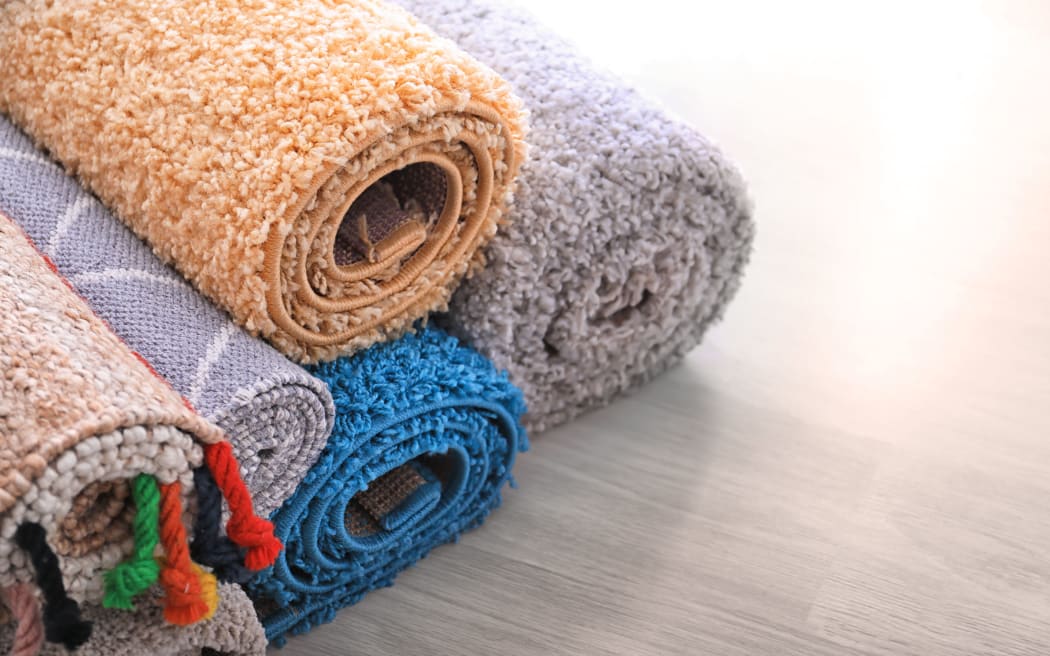
Photo: 123rf
More than 6000 people are enraged by a Ministry of Education decision to fit schools with American synthetic carpet over homegrown wool varieties.
The government has signed a nearly $8 million deal with the offshore supplier to fit hundreds of schools with a nylon option - prompting a petition and outpouring of frustration.
Farmers are angry over the decision as they struggle to make a profit off their wool clip - and know their kids will be sitting on a plastic alternative.
But is synthetic really the best decision?
In Gisborne, the tamariki at Te Kura Kaupapa Māori o Whatatutu get to sit on their newly laid wool carpets tiles.
Bessie McClaren from the school said it was important for them to keep the youngins cozy.
"It's warmer, it's safer in case of fire, it will just singe and not burn, a more homier feeling to it."
And the kids were happy.
"Oh yeah, they don't mind sitting on the ground for long now, we get our year one and two's to sit on the ground for at least 45 minutes in the morning when we have karakia, and they don't mind sitting there, it's a lot more comfortable."
As a school they decided to get carpet tiles, so if one wears out, they can just replace the single tile.
McClaren said seven months in - they were still in perfect nick.
But it will not be the same story for about 600 other schools - where kids will have to e noho/sit on an American, nylon carpet.
The Ministry of Education has signed a $7-to-$8m deal with the company - causing outrage, prompting a petition where people describe the decision as daft.
One person said: "It's appalling to use plastic when we have fabulous wool!!!"
Another argued: "Using nylon flooring makes absolutely no sense, especially given the benefits of wool - what does this choice teach our kids about looking after our planet?"
One petition signer said: "It’s ridiculous not to support local industry especially when it ticks all the boxes for sustainability, safety, local, climate miles, etc. This decision is simply barmy."
"Best to use New Zealand products and it keeps New Zealanders employed," another person wrote.
And lastly: "Stop the plastic madness. Support local. Support wool."
But while it is a nice idea - it is not exactly backed up.
Barney Sharland is a veteran in the carpet world after 56 years in the game.
And while Sharland was a big wool fan - he said the ministry had made the right call.
"It's got to be horses for courses, and putting wool into schools is ideology and while it sounds good, it's how the carpet is going to wear and it's appearance retention in a short space of time. It's going to dirty out, and getting stains out of wool carpet in a school situation is a nightmare."
He said it simply would not be worth the hassle to try and keep a wool carpet clean, unless the ministry was willing to spend big bucks.
Sharland said the wool fibres also risked creating dust mites which could lead to allergies and asthma for children.
Wool carpet tiles are also not as environmentally friendly as one might hope - as the wool backings are synthetic and need to be sent to Thailand for recycling.
However, Sharland said wool still had its place, it was perfect for improving fire grades in hotels and cinemas - but primary schools are not the perfect fit, or best use of money.
The Ministry of Education agreed.
In a statement, its head of property, infrastructure and digital, Sam Fowler, said carpets in primary schools get thrashed.
"It's important for the product to last a long time and be cost-effective in the long run - the solution, dyed nylon pile carpet option stood out as the more practical choice given these considerations.”
"It is materially less expensive than other options, meaning it's a more cost-effective use of public funds."
He said the equivalent tender for the 230,000 square-metres needed in wool tiles was substantially more expensive.
Additionally, to address environmental concerns, Fowler said the nylon product is 100 percent recyclable, free of harmful chemicals and is expected to enable schools to enjoy good-quality carpets for at least 15 years before needing to be removed and recycled.
The Ministry of Education previously told RNZ that none of the potential suppliers put forward a locally manufactured carpet.
Just one was made from New Zealand wool, but manufactured overseas.


